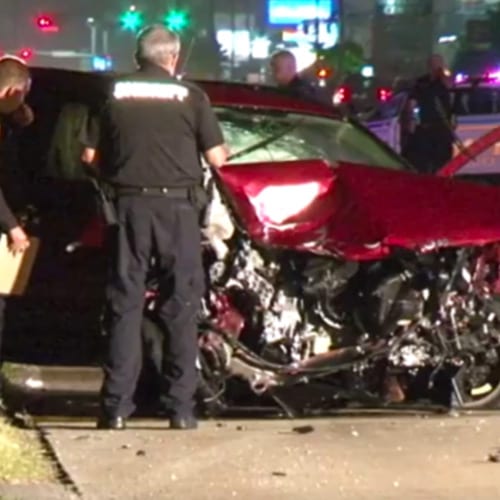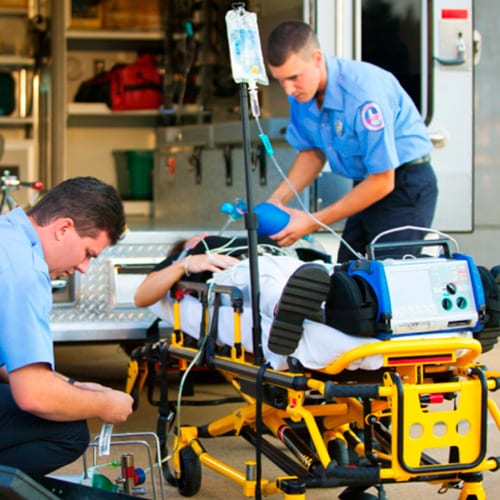Common TBI Symptoms
Traumatic brain injuries occur for a number of reasons. They are commonly caused by sports injuries, falls, car accidents and person-to-person violence. The immediate symptoms range from mild discomfort and dizziness to severe headache and slurred speech.
If you or a loved one has experienced one of these injuries, keep track of your symptoms. Having up-to-date information over a period of a couple of days can help you speak about your injury with a licenced health professional. Our resource isn’t comprehensive – you may experience symptoms that are not on the head injury checklist, or none found on the page.
According to the Mayo Clinic, symptoms of mild traumatic brain injury include:
- Loss of consciousness for a few seconds or minutes
- A confused and disoriented state
- Headache
- Problems with memory
- Nausea
- Mood swings and changes
- Fatigue
- Feelings of anxiety and depression
The victim of a more severe head injury will exhibit many of the same symptoms, but may have a harder time recovering. The immediate symptoms of a severe traumatic brain injury include:
- Loss of consciousness for several minutes or several hours
- Slurred speech
- Deep confusion
- Loss of coordination
- Persistent headache that may worsen over time
- Repeated vomiting
- Convulsions or seizures
- Clear fluids draining from the nose or ears
- Agitation, aggressiveness and other uncharacteristic behaviors
9 Signs of Possible Brain Injury
Still unsure of whether or not you may need medical attention? Traumatic brain injury, or TBI, can be a sneaky injury. The symptoms of a TBI might not show up right away, waiting days or weeks, and may not even seem like signs of a brain injury. Knowing the symptoms of this all too common injury may help you prevent yourself or a loved one from suffering long-term damage.
Difficulty sleeping or sleeping more than usual — After a head injury, you should watch the victim’s sleep patterns. If he or she is having trouble sleeping or feels as if he or she needs to sleep more than usual to be rested, it’s time to visit the doctor. How common are sleep problems following a TBI? Studies show that sleep disorders are 3 times more common in TBI patients than in the general population. 60% of TBI patients experience long term difficulty sleeping.
Examples of Sleep Problems after a TBI:
- Insomnia
- Excessive Daytime Sleepiness
- Delayed Sleep Phase Syndrome
- Narcolepsy
This list is not exhaustive. Because sleep is a complex process that involves many parts of the brain, a mild to severe injury may affect REM cycles and good quality sleep. Talk to your doctor if you are experiencing problems sleeping after an injury or accident.
Wild mood swings — Be on the lookout for any changes in behavior, especially mood swings. A brain injury can show up through outbursts and unpredictable mood swings. It may be more difficult to control emotions after a TBI. Injuries from car accidents can hurt family relationships if a family member thinks that they have done something to upset an injured family member. If you or a family member is experiencing mood swings after a brain injury:
- Counseling for family members
- Medication to stabilize mood
- Remain calm if an outburst occurs
- Redirect energy, attention to a different activity.
Feeling of depression or anxiety — Traumatic brain injuries can trigger an intense sadness in its victims. The injured may withdraw from people and activities that used to make him or her happy and may feel hopeless.
Agitation, combativeness or other unusual behavior — A brain injury may cause your loved one to stop being the person you knew before the accident. If your loved one changes his or her behavior after a head injury, it may be a sign of a serious brain injury.
Nausea or vomiting — This symptom usually presents itself soon after the injury takes place. If a victim feels nauseated after a head injury, seek medical attention immediately.
Loss of coordination — This is usually a sign of a severe brain injury. The injured may have difficulty walking and that difficulty may be more pronounced on one side or the other.
Numbness in extremities, such as fingers and toes — Brain injuries can sometimes cause victims to suffer numbness or tingling in their fingers or toes. Sometimes, this numbness can be accompanied with weakness.
Clear fluid or blood seeping from the nose or ears — If the injured has clear fluids draining out of his or her nose or ears, take him or her to a doctor immediately. This fluid may be cerebrospinal fluid, which cushions the brain.
Slurred speech — Slurred speech is a common symptom of a severe brain injury. If your loved one is slurring frequently, you should seek medical attention for him or her as soon as possible.
If you or someone you love experiences any of these symptoms after a head injury, go to the hospital immediately. The faster a traumatic brain injury is diagnosed, monitored and treated, the more likely you’ll have a successful recovery.
Recent Personal Injury Case Results
The McMinn Law Firm has helped injured Austinites for fifteen years, winning over 100 million dollars in settlements to date.
Uninsured Motorist Accident
$350,000
Drunk Driver Accident
$1,300,000
Truck Accident Victim
$1,200,000
Austin Personal Injury Lawyers Waiting To Help You
We specialise representing clients in the following areas, we are waiting to help you on your personal injury case.








Our Awards



What Past Clients Are Saying
In Need Of Compensation?
Let us – at no cost to you – evaluate your situation so you can be sure. We don’t get paid unless you do. Call or reach out today to speak to an attorney with no obligations.
